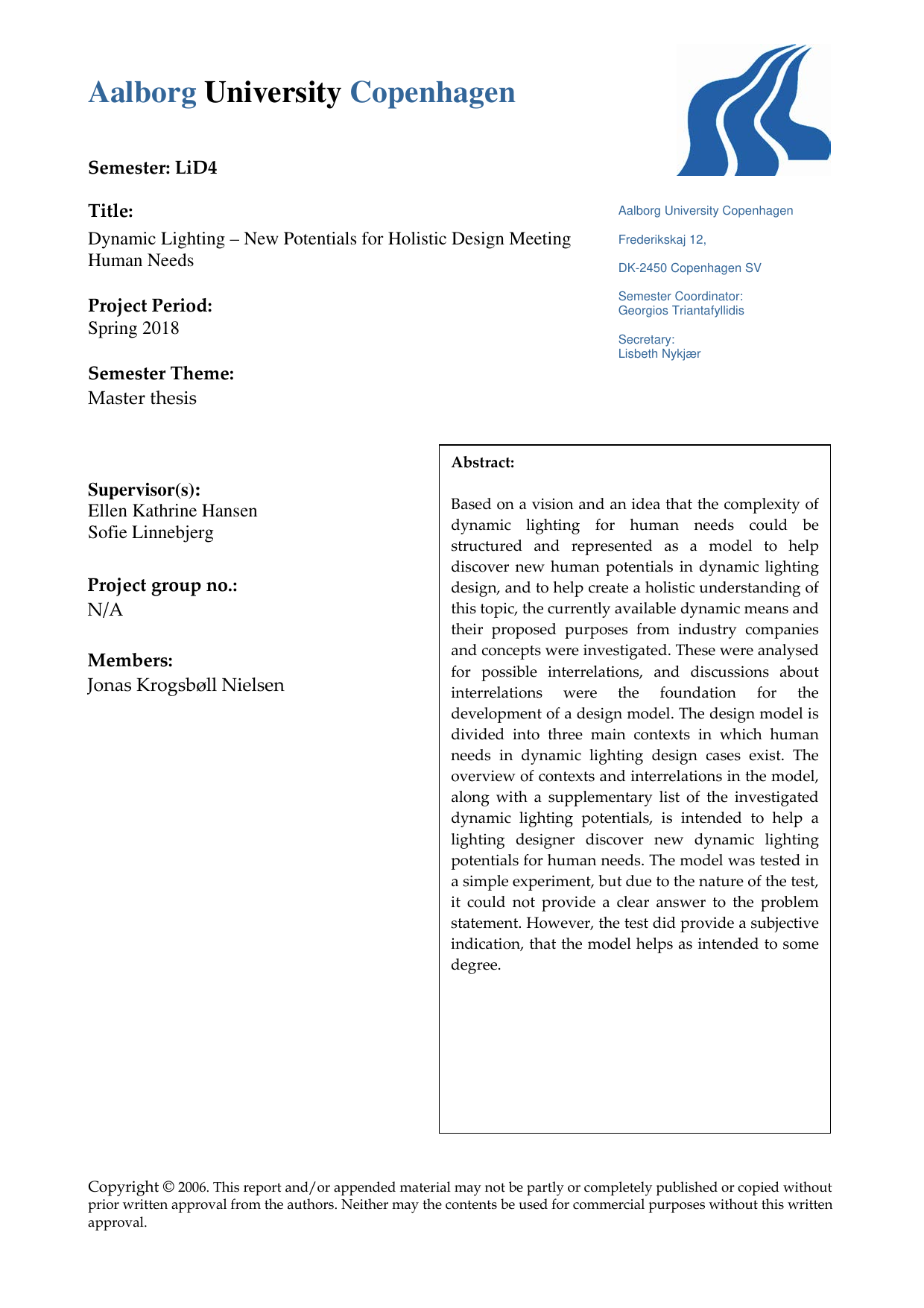
Dynamic Lighting - New Potentials for Holistic Design Meeting Human Needs: A study in the currently available dynamic lighting design means and how to define new human potentials for everyday dynamic lighting design through a design model.
Translated title
Dynamic Lighting - New Potentials for Holistic Design Meeting Human Needs: En undersøgelse af industriens aktuelt tilgængelige dynamiske lysvirkemidler og af hvordan man kan finde nye dynamiske lyspotentialer målrettet menneskelige behov, ved brug af en model.
Author
Term
4. Term
Education
Publication year
2018
Submitted on
2018-06-14
Pages
52
Abstract
Baseret på en vision og idé om, at kompleksiteten i dynamisk belysning til menneskelige behov kan struktureres og repræsenteres som en model, der kan hjælpe med at finde nye dynamiske lyspotentialer til menneskelige behov, og til at skabe en holistisk forståelse for dynamisk belysning til menneskelige behov, blev aktuelt tilgængelige dynamiske lysvirkemidler fra industrien undersøgt. Disse lysvirkemidler blev analyseret for mulige sammenhænge og forhold, som dannede basis for udviklingen af en designmodel. Designmodellen er inddelt i tre hovedkontekster, hvori menneskelige behov for dynamisk belysning kan findes. Overblikket over kontekster og deres indbyrdes relationer i modellen, sammen med en supplerende liste over dynamiske lyspotentialer fundet i undersøgelsen, har til formål at hjælpe lysdesignere med at opdage nye potentialer for at imødekomme menneskelige behov med dynamisk belysning. Modellen blev testet i et simpelt eksperiment, men på grund af eksperimentets udformning, var det ikke muligt at komme med et klar svar på problemformuleringen. Dog gav testen en subjektiv indikation på, at modellen hjælper efter hensigten til en hvis grad.
Based on a vision and an idea that the complexity of dynamic lighting for human needs could be structured and represented as a model to help discover new human potentials in dynamic lighting design, and to help create a holistic understanding of this topic, the currently available dynamic means and their proposed purposes from industry companies and concepts were investigated. These were analysed for possible interrelations, and discussions about interrelations were the foundation for the development of a design model. The design model is divided into three main contexts in which human needs in dynamic lighting design cases exist. The overview of contexts and interrelations in the model, along with a supplementary list of the investigated dynamic lighting potentials, is intended to help a lighting designer discover new dynamic lighting potentials for human needs. The model was tested in a simple experiment, but due to the nature of the test, it could not provide a clear answer to the problem statement. However, the test did provide a subjective indication, that the model helps as intended to some degree.
Keywords
Documents
